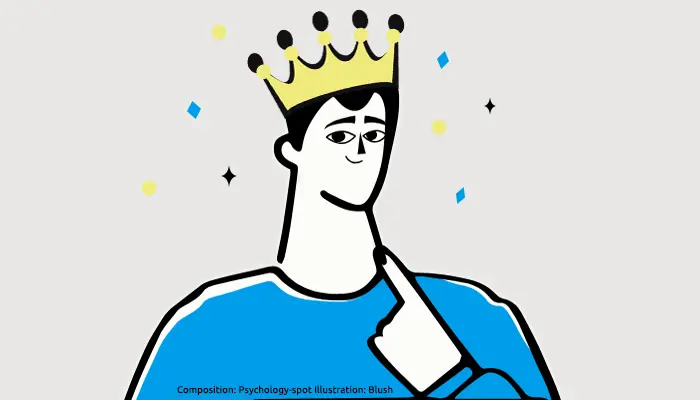
Vanity is a religion that has a legion of followers. There are all kinds and conditions, but beyond their differences all have a common characteristic: they wear a mask. People who brag a lot sacrifice their true identity – or at least a part of it – on the altar of appearances. They brag their qualities, achievements and successes to achieve the admiration and respect of those around them. And if necessary, they also resort to exaggerations and lies.
However, behind that apparent security, there is actually a sense of incompleteness, as revealed by a study conducted at the University of Texas. In practice, people who brag a lot of their achievements and competencies need to fill a gap in their identity. Their displays are a compensatory strategy to symbolically complete their identity, filling in the missing part.
Tell me what you presume and I will tell you what you lack
There are people who need to show off their qualities and brag their triumphs. They live pending to make clear their merits and, if possible, for positioning themselves one step above the others. They feed on applauses and external recognition. However, since “all that glitters is not gold”, in the end these people could have a big problem with their identity symbols.
Identity symbols are those characteristics with which we define ourselves and that others recognize. Being a musician, researcher, teacher, father, loyal or intelligent are “labels” that we place ourselves to be recognized in society. All these labels are part of our identity and shape the image we have of ourselves.
These psychologists wondered if the confidence we have in the identity we have built determines the need we feel to influence people around us. To verify this, in an experiment, they asked the participants to name an activity or topic in which they felt particularly competent and to write how many years they had dedicated to it and when was the last time they worked in that area.
Then they were asked to write an essay about that area and decide how many people should read what they had written. The surprising thing was that, the less experience and mastery the participants had on an activity or topic, the wider they wanted their audience to be.
On the contrary, the most experienced people were more self-critical and modest. This indicates that people who brag a lot have less “complete” identities and want to influence more the others.
The lack of identity symbols leads to the exaggeration of the “ego”
The researchers point out that “it is unlikely that a person who has lasting competencies will be involved in self-symbolizing actions. The person with a great experience in an activity, for example, does not infinitely draw the attention of others on his characteristics or competences; This person will carry out the activity in an atmosphere of modesty and unpretentious”.
That is, people who feel complete and self-confident do not need to constantly show off their achievements and qualities because internal recognition is enough for them, they do not need external applauses to underpin their “ego.”
“On the contrary, the frequent use of status symbols such as ‘knowing more’ than the other and the efforts to influence the others can be taken as signs of insecurity or ‘incompleteness’ in the domain of an activity”, the researchers said.
In practice, people who brag a lot are not willing to tolerate “inadequacies” in the important parts of their self-definition. And as they tend to be impatient with regard to the definition of the self, when they feel they have fallen short in one of the areas of their identity, instead of working to improve it, they simply resort to other identity symbols to cover the part that they lack or exaggerate their achievements and qualities to achieve the recognition they believe they deserve.
Of course, we cannot deny that the environment in which we operate creates social pressure so that we present ourselves in the best possible way and thus be able to obtain the approval and respect we need to live in society. However, we have to watch the mask we put on, because over time we can forget who we really are, as Alan Moore said.
The appearance, without essence, is an empty shell, a facade that will sooner or later fall. Those who live too pending to make clear their merits will have to pay a very high price since they will become slaves of their own disguise. As Honoré de Balzac said: “We must leave vanity to those who have nothing else to exhibit.”
Sources:
Wicklund, R. A. & Gollwitzer, P. M. (1981) Symbolic Self-Completion, Attempted Influence, and Self-Deprecation. Basic and Applied Social Psychology; 2 (2): 89-114.
Parra, S. (2019) Las personas inseguras alardean tanto porque necesitan rellenar vacíos en su identidad. Xataka.



